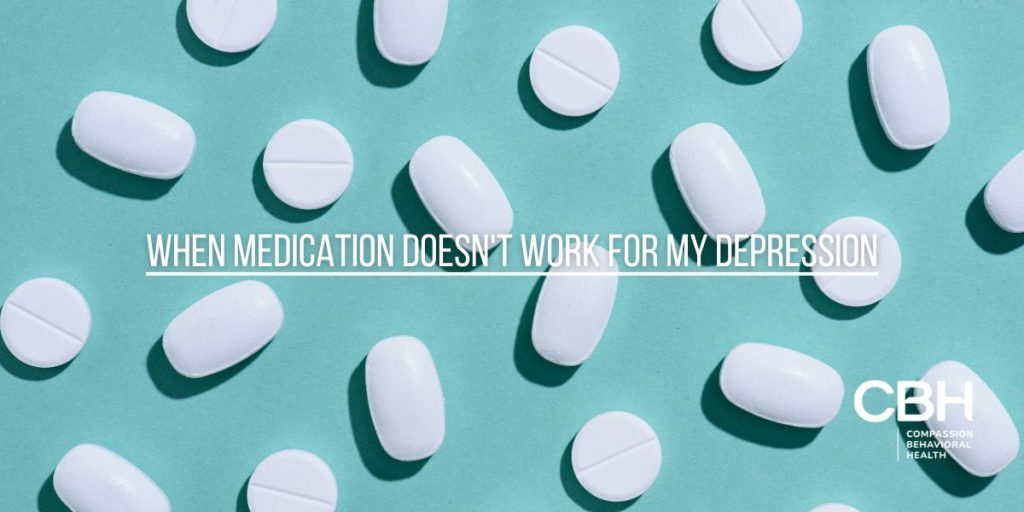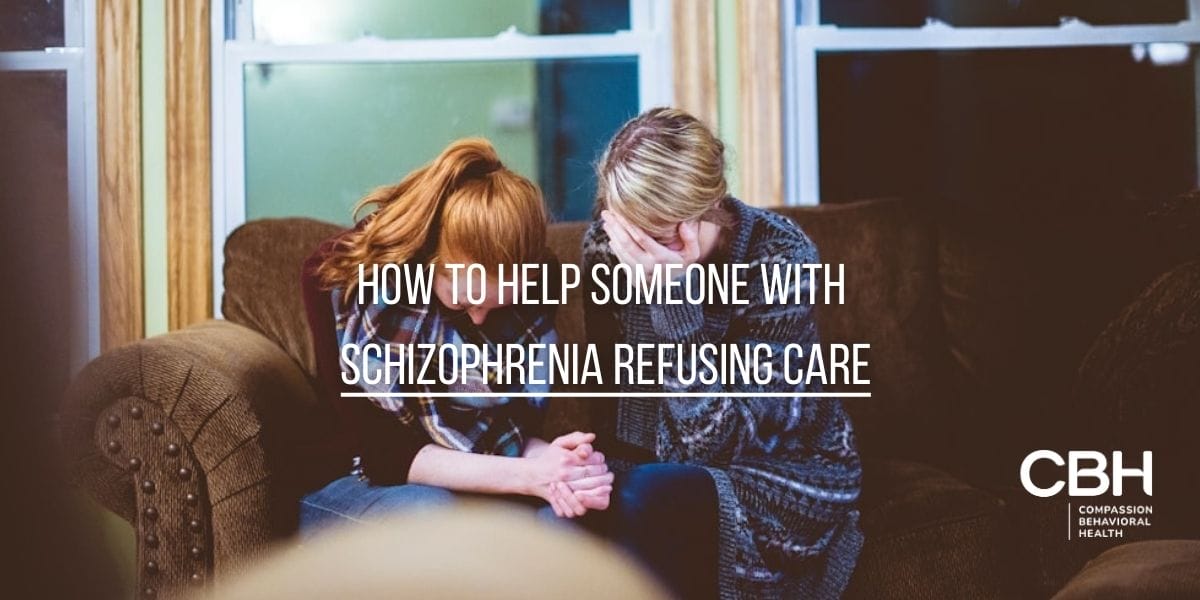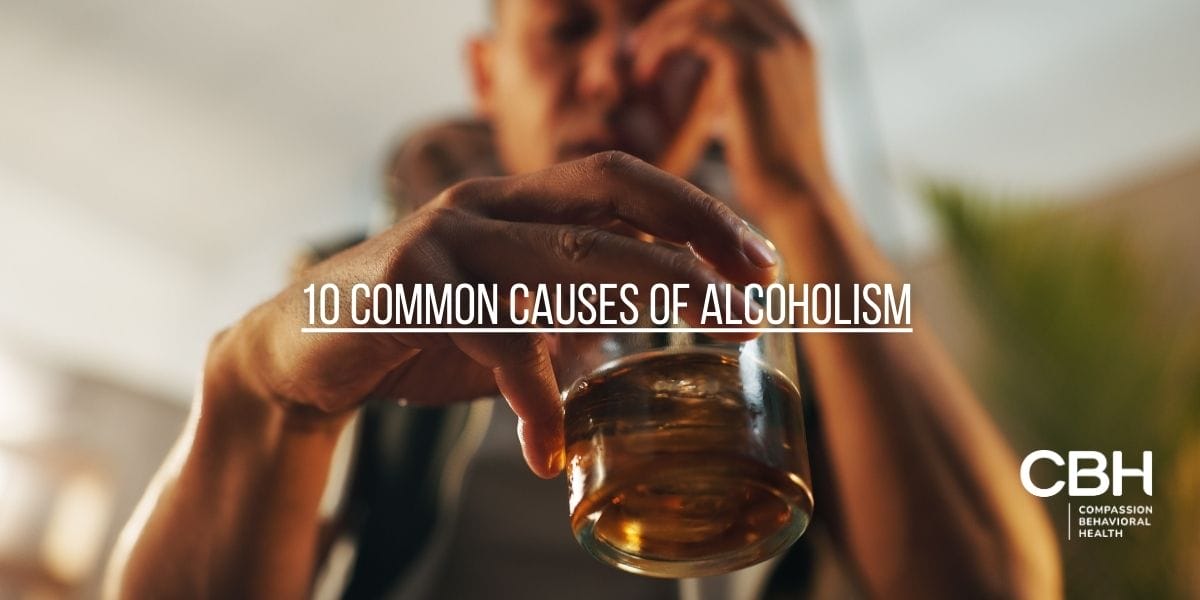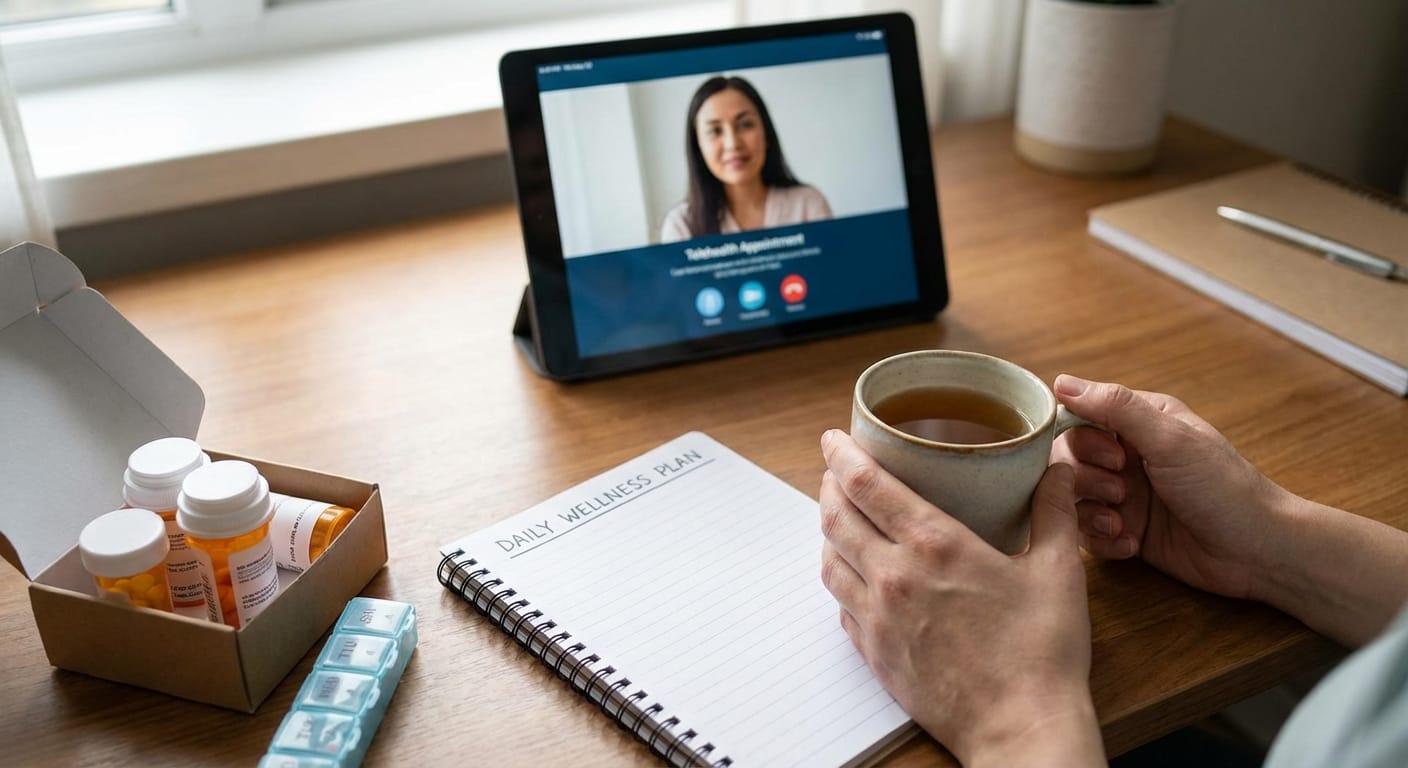Many people facing depression often turn to medication as a primary treatment option. However, not everyone responds well to antidepressants, and for some, these medications may not provide the relief they had hoped for. This article explores the limitations of antidepressants, potential alternative treatments, and coping strategies that can help individuals manage their depression effectively.
Understanding the Limitations of Antidepressants
While antidepressants can be beneficial for many, they are not a one-size-fits-all solution. Understanding their limitations is crucial for individuals seeking effective treatment for their depression.
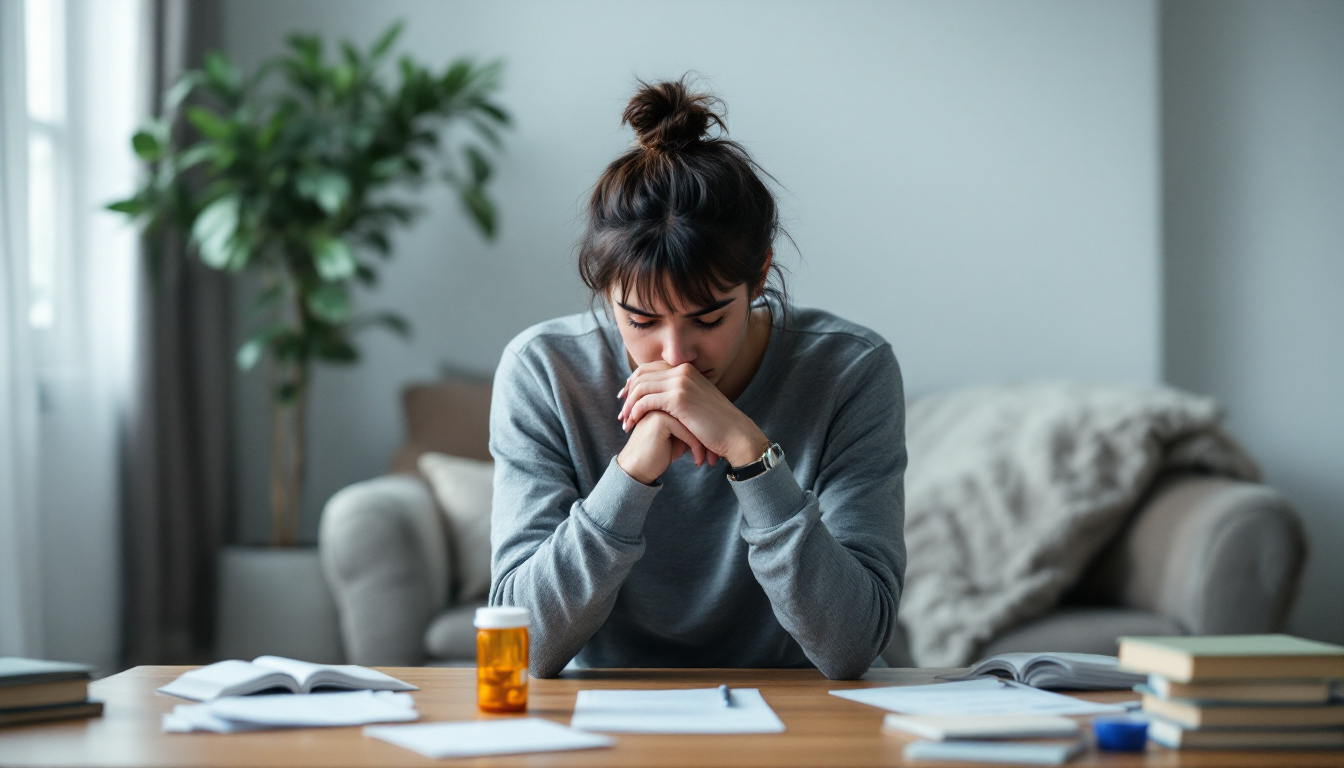
Antidepressants primarily work by altering the brain’s chemistry in order to improve mood. However, several factors can affect their efficacy:
- Individual Variability: Each person’s brain chemistry is unique, which means that what works for one individual may not work for another.
- Side Effects: Many people experience unpleasant side effects that can be debilitating and may lead to discontinuation of medication.
- Delayed Effectiveness: Antidepressants often take weeks to show effects, which can be frustrating for those in immediate distress.
- Not Solving the Problem: Medication may alleviate symptoms but doesn’t necessarily address the underlying issues contributing to depression.
Due to these limitations, individuals need to consider alternative options and develop a comprehensive treatment plan that does not solely rely on medications. This holistic approach may include lifestyle changes, therapy, and support systems that can provide a more rounded strategy for managing treatment-resistant depression.
Moreover, the stigma surrounding mental health can also play a significant role in how individuals perceive and seek treatment. Many may feel hesitant to discuss their struggles openly, fearing judgment or misunderstanding. This can lead to a lack of support, which is crucial for recovery. Therefore, fostering an open dialogue about mental health within communities can help individuals feel more comfortable seeking the help they need.
Why Some People Don’t Respond to Antidepressants
There are several reasons why individuals may find antidepressants to be ineffective:
- Type of Depression: Different kinds of depression, such as major depressive disorder, dysthymia, or bipolar disorder, may require varying treatment approaches.
- Genetic Factors: Genetic predisposition can play a significant role in how one responds to medication.
- Co-existing Disorders: Conditions such as anxiety, PTSD, or substance abuse can complicate treatment and affect how antidepressants work.
Recognizing these factors can help individuals be more informed when discussing treatment options with their healthcare providers. Furthermore, understanding that the journey to finding the right treatment can be a process of trial and error is essential. Some may need to try multiple medications or combinations before discovering what works best for them, which can be a daunting experience but is often necessary for effective management.
Additionally, the role of lifestyle factors cannot be overlooked. Nutrition, sleep patterns, and social interactions can significantly influence mental health. For instance, a diet rich in omega-3 fatty acids and antioxidants may support brain health, while a lack of sleep can exacerbate depressive symptoms. Therefore, integrating these lifestyle considerations into treatment discussions can empower individuals to take a more active role in their recovery.
Combining Treatments for Better Outcomes
For some, combining antidepressants with other therapeutic options may enhance overall effectiveness. These alternatives can help address the multifaceted nature of depression:
- Cognitive Behavioral Therapy (CBT): A structured approach that helps individuals identify and change negative thought patterns.
- Mindfulness and Meditation: Practices that help with emotional regulation and stress management.
- Exercise: Regular physical activity has been shown to improve mood and reduce symptoms of depression.
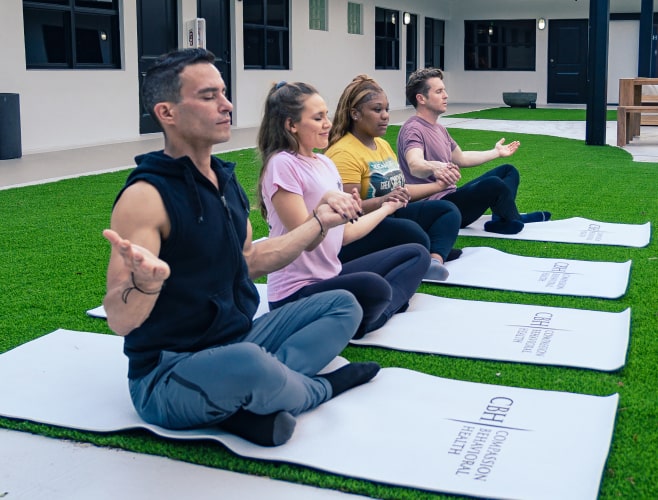
This combination approach can sometimes lead to better management of depressive symptoms and improve the quality of life. Furthermore, engaging in group therapy or support groups can provide individuals with a sense of community and shared experience, which can be incredibly validating and encouraging. Sharing stories and coping strategies with others who understand can foster resilience and hope, making the journey through depression feel less isolating.
Moreover, exploring creative outlets such as art, music, or writing can also serve as therapeutic tools. These activities can provide a means of expression that may be difficult to articulate verbally, allowing individuals to process their emotions in a safe and constructive manner. Embracing a variety of treatment modalities can create a more personalized approach, ultimately leading to a more effective management of depression.
Exploring Alternative Treatments
When traditional antidepressants don’t yield results, numerous alternative treatments may offer hope for better symptom management. These options can vary significantly regarding their methodologies and outcomes, so understanding each is essential.
Psychotherapy
Psychotherapy is an essential component of treating depression. Various forms of therapy can provide support, guidance, and coping strategies. Popular therapeutic approaches include:
- Interpersonal Therapy (IPT): Focuses on improving interpersonal relationships and communication skills to alleviate symptoms.
- Dialectical Behavior Therapy (DBT): A form of cognitive behavioral therapy that emphasizes emotional regulation and mindfulness practices.
- Acceptance and Commitment Therapy (ACT): Encourages individuals to accept their thoughts and feelings rather than fighting against them.
These therapies can help equip individuals with tools necessary for managing their depression. Additionally, the therapeutic relationship itself can be a source of healing, as the support and understanding from a trained professional can foster a sense of safety and validation. Many people find that the process of sharing their experiences and emotions in a non-judgmental environment can lead to profound insights and personal growth. Furthermore, group therapy settings can also provide a sense of community, allowing individuals to connect with others facing similar challenges, which can be incredibly empowering.
Holistic Approaches
Many individuals find relief through holistic approaches that focus on the whole person—mind, body, and spirit. These can include:
- Nutrition: A well-balanced diet rich in omega-3 fatty acids, vitamins, and minerals can positively influence mood.
- Acupuncture: This traditional Chinese practice is thought to help balance energy in the body, which may reduce depressive symptoms.
- Yoga: This practice combines physical movement, meditation, and breath control, which can help alleviate stress and improve mental health.
Incorporating these holistic practices can promote healing and balance in multiple areas of life. Moreover, the integration of mindfulness techniques, such as meditation and deep-breathing exercises, can enhance emotional resilience and foster a greater sense of inner peace. Many individuals report that engaging in regular physical activity, whether through yoga or other forms of exercise, not only boosts their mood but also helps to reduce anxiety levels. The connection between physical health and mental well-being is increasingly recognized, making these holistic approaches a valuable addition to any treatment plan.
Self-Care and Lifestyle Changes
In addition to professional help and alternative treatments, self-care plays a significant role in managing depression. Simple lifestyle changes can have profound effects:

- Sleep Hygiene: Prioritizing regular sleep schedules and creating a restful environment can greatly affect mood. Establishing a calming bedtime routine, such as reading or practicing relaxation techniques, can signal to the body that it’s time to wind down. Additionally, minimizing screen time before bed can enhance the quality of sleep, allowing for deeper rest and rejuvenation.
- Social Support: Maintaining connections with family and friends can provide comfort and understanding. Engaging in regular social activities, whether it’s a weekly coffee date or a group hike, can strengthen these bonds and provide a network of support during tough times. Furthermore, sharing experiences with others can foster empathy and reduce feelings of loneliness.
- Limiting Alcohol and Substance Use: These can worsen depressive symptoms and hinder overall health. Understanding the impact of substances on mental health is crucial; for instance, while alcohol may initially seem to provide relief, it can lead to increased anxiety and mood swings. Exploring healthier coping mechanisms, such as exercise or creative outlets, can be beneficial alternatives.
Implementing small changes in daily life can foster a sense of control and improve mental well-being. Even simple practices like journaling or mindfulness meditation can cultivate a greater awareness of thoughts and feelings, promoting emotional resilience.
Community and Support Groups
Connecting with others who share similar experiences can be invaluable. Support groups provide a platform for sharing and learning from one another:
- Peer Support Groups: These gatherings allow individuals to discuss their feelings and coping strategies in a safe environment. Often facilitated by trained leaders, these groups encourage open dialogue and can help members develop new skills for managing their mental health. The shared understanding within these groups can create a powerful sense of camaraderie.
- Online Communities: Virtual support groups provide flexibility for those who may find in-person meetings challenging. These platforms can offer anonymity and accessibility, allowing participants to engage at their own pace. Many online communities also host webinars and discussions with mental health professionals, providing valuable resources and insights.
Being part of a community can combat feelings of isolation and lend a sense of belonging. Engaging in group activities, whether in person or online, can also inspire motivation and accountability, encouraging individuals to stick to their self-care routines and lifestyle changes. Additionally, hearing success stories from others can instill hope and reinforce the belief that recovery is possible.
Conclusion
Medication may not work for everyone seeking relief from depression, but there are numerous alternatives worth exploring. Understanding the limitations of antidepressants is the first step toward finding a solution that works.
Combining treatments like psychotherapy, holistic approaches, and adopting self-care strategies can have a profound impact on managing depressive symptoms. It is essential to remember that recovery is a personal journey that may require trial and error. With the right support and resources, individuals can find effective ways to manage their depression and reclaim their lives.
If you or someone you know is struggling with depression, reach out for help. There are multiple avenues to explore, and you do not have to face this journey alone.

If you’re feeling overwhelmed by depression and traditional medications haven’t provided the relief you’re seeking, remember that alternatives are available. At Compassion Behavioral Health, we understand the complexity of mental health and substance use challenges. Our customized approach is designed to offer you a ray of hope and support you in achieving long-term, sustainable recovery. Our team is ready to help you create a personalized rehabilitation program that addresses your unique needs. Conveniently located in South Florida, our Hollywood rehab center is a nurturing environment where you can focus on your mental and physical health. Don’t hesitate to take the first step towards reclaiming your life. Call Us Today and let us be part of your journey to wellness.
